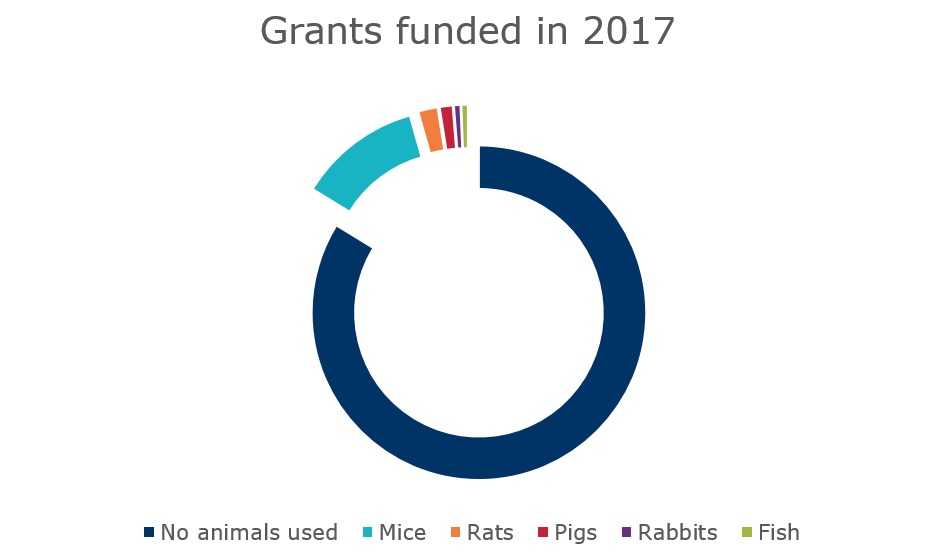Statistics on the number of Academy grants funding animal research have now been published for 2017.
Last year, we funded 26 grants proposing the use of animals*, out of a total of 160 grants awarded – this equates to around 16% of our grants within a twelve month period.
Of the 26 awards, 19 used mice, three used rats, two used pigs, one used rabbits and one used fish.

The Academy uses expert peer review to ensure that we fund only high-quality research where the benefits to people and animal health outweigh any harms to animals. As part of this review process, we are able to send relevant applications for expert review by the National Centre for the Replacement, Refinement and Reduction of Animals in Research (NC3Rs). We used this peer review service twice in 2017, resulting in one successful application .
In addition to our peer review processes, all research involving the use of animals must also be licensed by the UK Government, through the Animals in Science Regulation Unit in the Home Office.
As part of our commitment to the 2014 Concordat on Openness on Animal Research, the Academy will publish annual statistics on the use of animals in the grants that we fund.
The Academy supports the principle of using animals in research when there is no alternative that can be used to find out the same information without using animals. We support the implementation of the 3Rs to refine, reduce and replace the use of animals in research and all of our awardees are required to follow the ARRIVE guidelines (Animal Research: Reporting of In Vivo Experiments) when conducting research using animals to improve the design, analysis and reporting of animal research, maximising information published and minimising unnecessary studies.
For more information about the Academy's position, please see our Statment on the use of animals in research
For more informartion on the Concordat, please visit the dedicated UAR website.
* defined as those who selected “yes” to a question on whether the “Animals scientific procedures act” is applicable to their work.